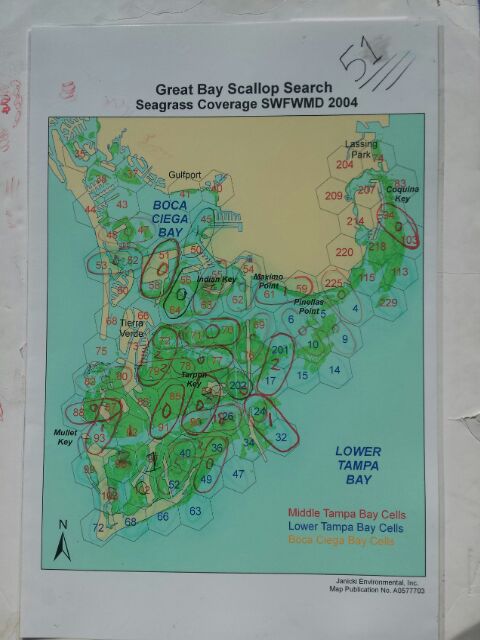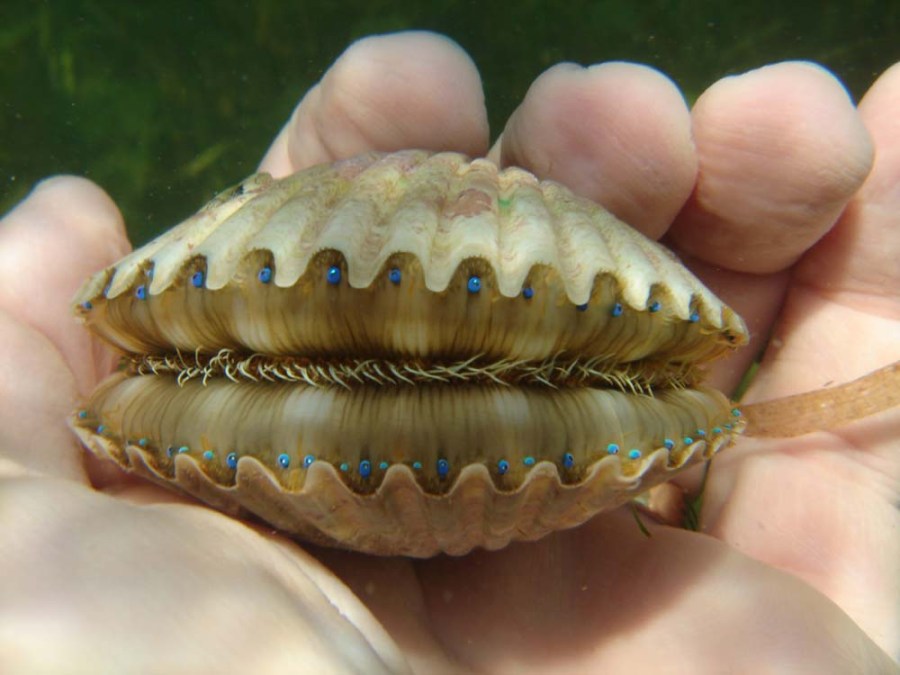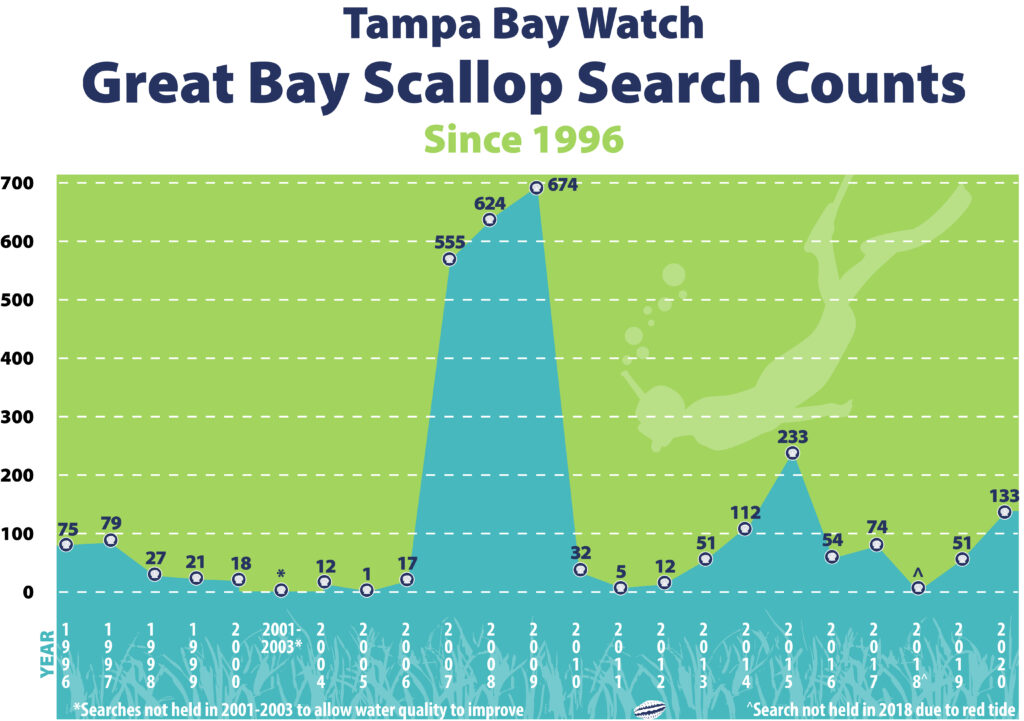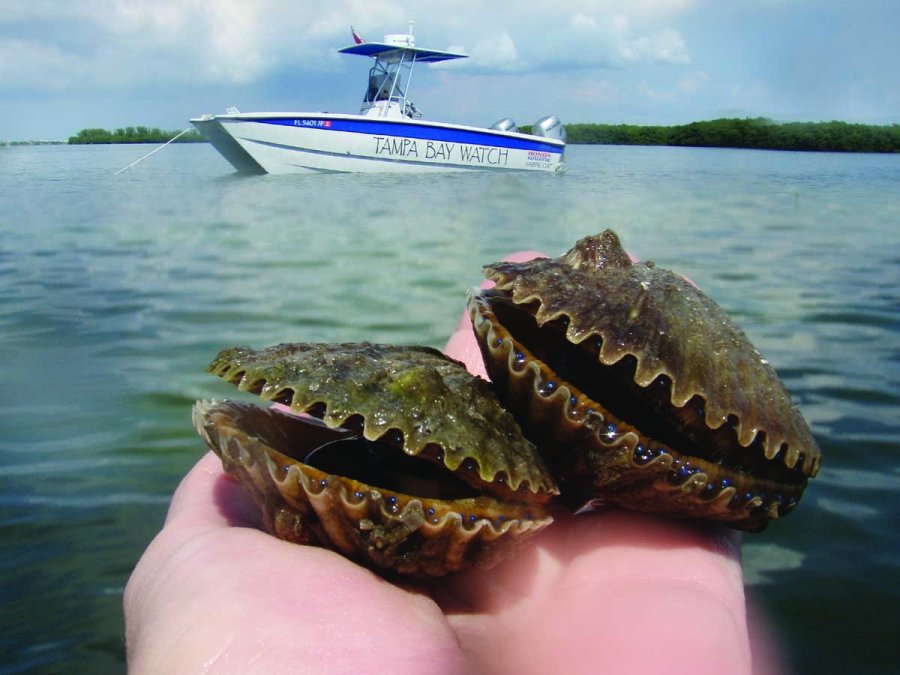TAMPA, Fla. (WFLA) — Almost every year since 1996, about 200 volunteers jump into Tampa Bay to snorkel around and look for bay scallops.
They are not there to harvest them though, they are there to count them. Local non-profit Tampa Bay Watch conducts this search because scallops are a good water quality indicator.

Scallops kind of act as a canary in a coal mine for waterways. Eric Plage with Tampa Bay Watch says they are susceptible to poor water quality and pollution. If you can’t find scallops in a place they should be, that might be an indication that the water quality there is poor.
They are a good indicator because they can move around.
“They do their small part to filter the water and clean it up a little bit but its more so that they have the ability to move. Scallops can migrate so they will actually migrate to better water quality,” said Plage.

Scallop counts fluctuate in the bay every year. Right now, there are not enough to recreationally harvest. There is some good news though—Plage was excited by the fact there are any scallops in the bay at all. He said it is a testament to the work being done to help clean up the water by organizations and people.

Every little bit helps. All storm water drains move runoff directly into the bay without being filtered. Excess fertilizer, pet waste, pollution on the roads and any chemicals all get washed into the drain and into the bay. This dramatically effects sensitive nitrate and phosphate levels in the bay which can help exacerbate algae blooms.

Eventually, the goal is to be able to harvest scallops in the bay, but the water quality and population just aren’t there yet. The number of scallops is much greater in northern Florida and along the the Nature Coast simply because there are fewer people leading to less pollution getting into the waters.






